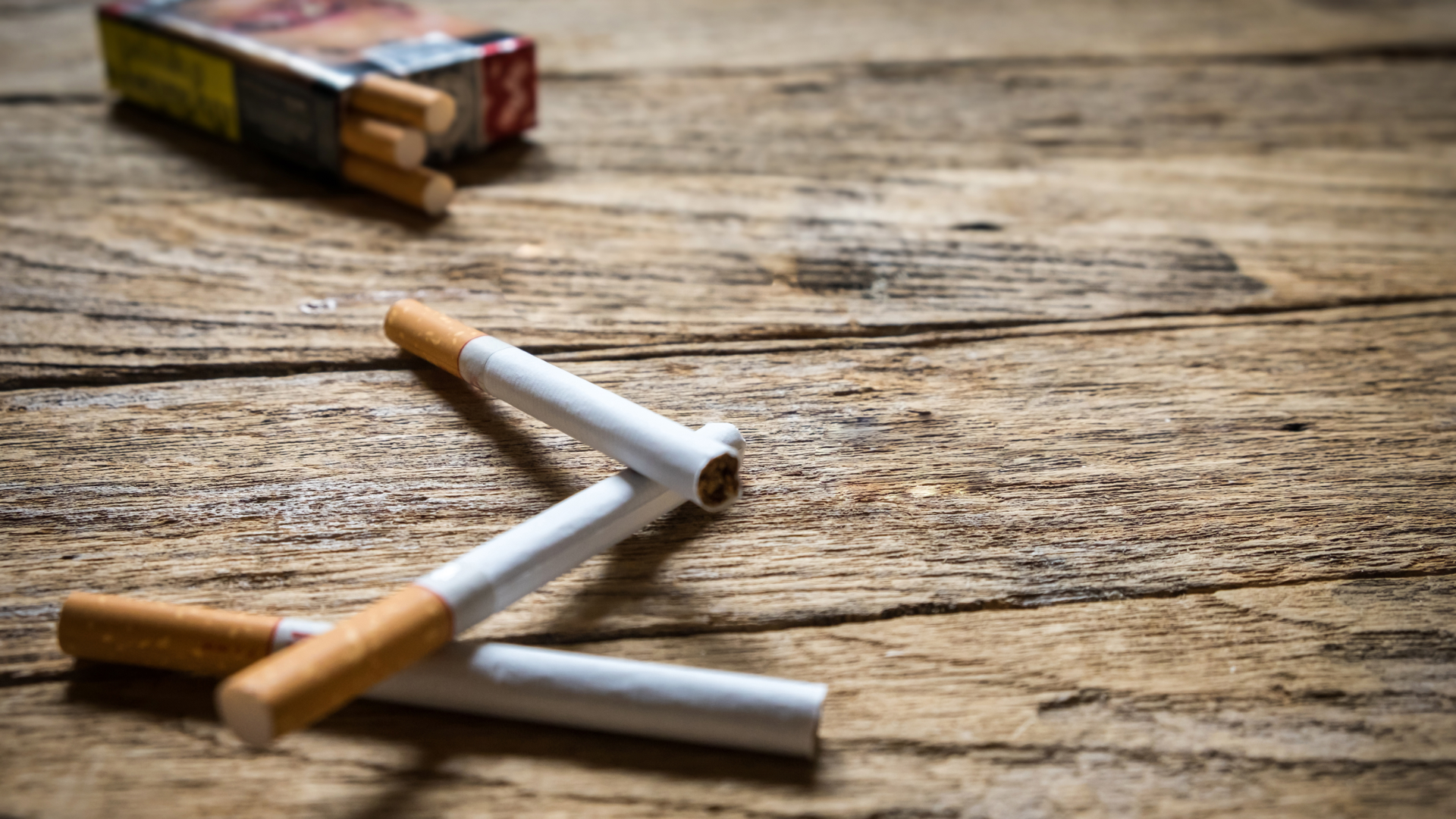Cigarettes do not expire, but they go stale. That’s the most common take you’ll see online. Is it true, though? Do cigarettes expire in the classic sense of it? Or is it something different?
Here’s what we, as a factory-direct cigarette store and long-time manufacturer of premium native smokes, think of it.
So, do cigarettes expire?
Yes, they absolutely do. And it’s 100% bad for you to smoke expired cigarettes.
Native cigarettes expire fast, especially when you keep them open & unsealed. They don’t “spoil” like, say, milk, but they lose all the qualities and get straight-up unsmokable.
What is an expired cigarette?
An expired cigarette is dried out, stale and unpleasant to smoke. You can expect from it:
- Dry, harsh smoke — they burn too fast and taste harsh;
- Weak or no flavor at all — because fresh tobacco has a stronger taste;
- Brittle and crumbling tobacco — as a rule of thumb, if the tobacco breaks, it’s too dry;
- Stale smell — old smokes smell musty or flat, not natural.
Some claim that it’s not an “expired” cigarette if it’s just stale. But we can, with the same confidence, claim that spoiled milk is “just curdled”. Call it all you want, we know you don’t want to drink spoiled milk. And you don’t want to smoke stale cigs either.
What defines how fast do cigarettes expire?
The speed of tobacco deterioration depends on the storage conditions, packaging and the blend:
Packaging
In terms of packaging, the level of air exposure plays the key role:
- Factory-sealed (wrapped in airtight plastic) cigarettes — expire in 12 months (a year);
- No-plastic, closed & sealed cigarette packs with protective foil liners and inner seals inside untouched — expire within 6 months;
- Opened cigarette packs — start losing flavor profile on day 2, almost lose it and go stale after approximately 2 weeks.
Storage
Exposure to the elements and storage conditions can affect it too. Here’s the full list of factors that can make your cigarettes expire faster:
- Dry environment — dries out tobacco and makes your smokes lose flavor;
- Heat and direct sunlight — make tobacco dry out significantly faster;
- High humidity — makes mold develop faster in cigarettes;
Also, extreme cold makes tobacco in cigarettes degrade as well.
Tobacco blend
The exact blend — say, signature Rolled Gold Full Flavor vs Canadian Classics SIlver, as a mixture of natural Canada-grown tobacco sorts — plays a big role as well. Not just on the speed of expiration, but on the flavor profile cigarettes get when they expire.
Here’s a quick overview of the most popular sorts from our tobacco experts:
| Tobacco Type | Curing Method | Sugar Content | Moisture Content | Staling Speed | Flavor Changes Over Time | Storage Sensitivity |
| Virginia | Flue-cured | High | 10–13% | Moderate | Loses sweetness; becomes harsh | Sensitive to air and heat |
| Burley | Air-cured | Low | 10–12% | Slower | Becomes flat or bitter | Sensitive to humidity |
| Oriental | Sun-cured | Moderate | 12–14% | Fast | Loses aroma; can become musty | Highly sensitive to moisture and mold |
All in all, you can expect your tobacco to just taste worse over time — regardless of the exact blend.
Do native smokes expire faster than corner store cigarettes?
Yes, native cigarettes expire faster. And we’re proud of it.
General depanneur smokes don’t expire as fast because they have a ton of chemicals and additives, up to 10% of the whole cigarette composition. And native smokes we make at Smokeway — have nothing but 100% natural tobacco.
Remember those videos with 20-year-old McDonald’s cheeseburgers that don;t rot for decades? That’s about what you get with c-store cigs. It’s unnatural.
Compared to international brands, native cigarettes in Canada are more like an apple: it’s going to lose color and turn brown in hours when you just leave it on the table.
What makes corner store cigarettes’ shelf life longer and why is it bad?
Just to name a few of the additives international brands use:
- Humectants (like glycerol, propylene glycol);
- Preservatives (most commonly — potassium sorbate or benzoic acid);
- Ammonia compounds (artificially stabilizes pH);
- Anti-microbials (like eucalyptol or synthetic menthol).
- Sucrose (to keep cigs sweet even after natural sugars are lost).
For context: humectants, when burned, produce acrolein and formaldehyde that irritate the throat and increase health risks, benzoic acid can form benzene, a carcinogen, and sucrose — when heated — caramelizes, producing another dangerous substance, acetaldehyde.
International cigarette brands NEED to add those compounds to their smokes because of the long supply chain, often spanning several months from the factory to the store shelf.
We, with native smokes that go to your doorstep straight from the conveyor in days, do not. It does not make native cigarettes completely safe or smoking — good, but the reduced shelf life and definitely removes the extra health risks that c-store cigs have.
Can cigarettes grow mold?
Another factor that makes expired cigarettes dangerous is mold.
Yes, cigarettes can grow mold.
It easily develops in tobacco, and spores are present almost anywhere. Even plastic-sealed cigarettes can go moldy, especially if the manufacturing process, as it is with counterfeit cigs, is not sterile.
Needless to say, smoking cigarettes that smoke as mildew is dangerous and it’s guaranteed to be bad for your health (not even mentioning that moldy smokes just taste terrible).
How to check if cigarettes are still OK to smoke?
Our quality control team uses advanced machinery and has a full-scale lab for quality control, but we’ve asked them to develop a process that anyone can follow at home.
Here’s a simple 5-minute, step-by-step way to check whether your cigarettes are expired or not, even if you don’t remember when you bought them:
Step 1 — Pack Condition Check
Just look at the pack:
- ✅Unopened or recently opened pack — sealed or recently opened cigs last longer;
- ❌Opened pack — more likely to be stale, especially if left open for weeks;
- ❌Damaged pack — if it’s torn or crushed, air/humidity may have ruined them.
Step 2: Cigarette Condition Check
Take a cigarette in your hands and look at it closely:
- ❌Dry, cracked tobacco — if it’s crumbling out, your cigs are too dry;
- ❌Discolored paper — yellow stains mean mold (throw them out & skip the burn test);
- ❌Bent or broken — if the structure is damaged, they won’t feel right.
Step 3 — Tobacco Check
Roll the cigarette in your fingers and get a bit of tobacco out. Touch it:
- ✅Fresh tobacco — slightly springy when gently squeezed;
- ❌Stale tobacco — feels brittle, overly dry, just hard.
Step 4 — Smell Check
Just gently sniff the pack with cigarettes:
- ✅Fresh cigarettes — smell earthy, slightly sweet, natural tobacco aroma;
- ❌Stale cigarettes — smell musty, cardboard-like, or don’t smell at all;
- ❌Moldy cigarettes — smell damp, sour, or have a mild mildew odor.
Step 5 — Only if unsure — Burn Check
Light a cigarette and observe the tip of it, pay attention to your experience:
- ✅Fresh tobacco — burns evenly, smooth draw, has full, rich flavor (even with light cigarettes), the smoke is white to gray;
- ❌Bad tobacco — burns too fast or unevenly, tastes bitter, weak, or “off”, has a harsh, chemical-like smoke.
The Verdict
If you get more ❌bad signs — it’s best to throw the whole carton away. Expired cigarettes are worse than just unpleasant to smoke, they’re a health hazard.
And if you get only the ✅ good signs — your cigarettes are OK, fresh and ready for you to smoke. Just store them properly.
Summary & Conclusion
Yes, cigarettes expire easily. Especially the natural tobacco ones, like the native smokes you can buy online at Smokeway. The substances that artificially prolong the shelf life of cigs are bad for your health, so the only option is buying fresh cigarettes and storing them away from sun, heat and humidity.
FAQ
Is it okay to smoke 10-year-old cigarettes?
No. Cigarettes that are THAT old are well beyond their expiration point. After 10 years, the tobacco is completely dried out, likely mold-contaminated, and chemically unstable. You’re not just getting a bad smoke — you’re risking serious harm.
Can you smoke 50-year-old cigarettes?
Technically, yes — you can. But it’s like drinking from a 50-year-old juice box. Old tobacco breaks down, and over decades, it doesn’t just dry up — it oxidizes and may develop harmful byproducts. There’s zero reason to smoke them unless you’re collecting, not inhaling.
How long do cigarettes stay good?
Depends on storage. Factory-sealed = up to 12 months. Opened = 2 weeks max. Anything past that? You’re gambling on flavor at best, and safety at worst.
Are old cigarettes safe to smoke?
No. Even if they look fine, stale cigarettes can be moldy, chemically unstable, and harsh. Smoking them is bad for your lungs, your throat, and your overall health.
Can tobacco go bad?
Yes. Natural tobacco degrades over time — it dries, loses flavor, and can grow mold. Just like bread goes stale or moldy, so does tobacco when left too long or stored poorly.
Do cigarettes expire if left unopened?
Yes, airtight doesn’t mean forever. Even sealed packs expire in about a year. Moisture balance and flavor compounds break down over time.
What does a stale cigarette taste like?
Harsh, bitter, flat. You’ll notice dry smoke, rapid burning, and missing flavor. Some taste downright chemical if stored improperly.
Can you rehydrate stale cigarettes?
Technically, yes — but it won’t bring back the original quality. Rehydration might soften the tobacco, but the taste and burn will still be off. Also: rehydrating moldy tobacco = big no.
Why do native cigarettes expire faster?
Because they’re natural. No added humectants or preservatives means the moisture and flavor degrade faster. That’s a trade-off for smoking something without chemical additives.
How do you store cigarettes to keep them fresh?
Cool, dark, airtight. Think dry pantry, not kitchen counter. Avoid sunlight, heat, humidity, or freezing temps — they all mess with tobacco.
Can freezing cigarettes keep them fresh longer?
Not really. Freezing dries tobacco out. While it may delay mold, it also destroys flavor and texture. Don’t freeze your smokes unless you want them bland and brittle.
What makes cigarettes moldy?
Humidity, poor storage, and time. Mold spores are everywhere, and tobacco is organic — given moisture and warmth, mold grows fast.
Can old cigarettes make you sick?
Yes. Smoking expired cigarettes can irritate your lungs, throat, and cause nausea or headaches. Moldy cigarettes? That’s even worse — inhaling mold is never safe.
Are stale cigarettes more harmful than fresh ones?
They can be. As tobacco degrades, it may produce more harsh chemicals when burned. Add that to the risk of mold or oxidation byproducts, and you’ve got more harm per puff.
Sources
- Long-Term Storage Study of the Certified 1R6F Reference Cigarette — https://pmc.ncbi.nlm.nih.gov/articles/PMC10114065/;
- Characteristics of Fungal Communities and the Sources of Mold — https://pubmed.ncbi.nlm.nih.gov/34850278/;
- Controlling Mildew of Tobacco Leaf by Bacillus amyloliquefaciens ZH — https://annalsmicrobiology.biomedcentral.com/articles/10.1186/s13213-024-01783-6;
- Determination of Humectants in Whole Tobacco: T-304 — https://healthycanadians.gc.ca/en/open-information/tobacco/t300/humectant;
- Sugars and Humectants in Cigarettes Lead to Higher Levels of Toxins in Smoke — https://www.rivm.nl/en/news/sugars-and-humectants-in-cigarettes-lead-to-higher-levels-of-toxins-in-smoke;
- Aldehyde and Volatile Organic Compound Yields in Commercial Cigarette Smoke — https://pmc.ncbi.nlm.nih.gov/articles/PMC7542651.

